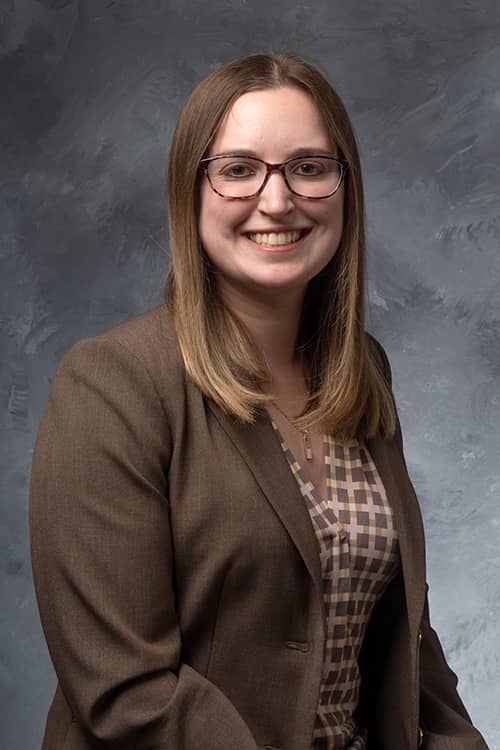
Melissa Jay, Ph.D. student, Biostatistics
Tracks cancer across geography
“Melissa’s dissertation research is to better understand why cancer rates change over geographic space and time. Although much is already understood in this area, there are often a small number of cases for rarer cancers in rural locations making the statistical analysis challenging. Melissa is developing novel statistical methods to address these issues to better analyze data from low prevalence diseases in rural areas.” – Jacob Oleson, Professor, Biostatistics
• Hometown: Sharon, MA
• Faculty mentor/advisor: Dr. Jacob Oleson
• What is your degree program and expected graduate date? I am in the Biostatistics PhD program and expect to graduate in May 2022.
• Please describe your research: I am developing improved statistical approaches for modeling and explaining differences in cancer risk at the ZIP code level. It can be challenging to obtain reliable estimates of cancer risk for ZIP codes due to the small population sizes and large number of zeros in the dataset. I use statistical models that borrow information from neighboring regions and past years of data to precisely estimate age-adjusted cancer incidence and mortality rates for small areas.
• In simple terms, why does this research matter? My work can be used to create reliable cancer risk maps. Disease maps are useful to health departments to compare risk across regions and to determine which areas would benefit most from public health interventions. I am also applying my statistical methods to understand which ZIP code-level variables explain the rural-urban differences in cancer risk so that we can better understand reasons for rural-urban disparities and identify tailored public health interventions.
• How soon after starting at the University of Iowa were you able to participate in research? I participated in research during my first semester at the University of Iowa.
• How has being involved in research made you more successful at the University of Iowa? My research experience has helped me hone my communication skills. While at Iowa, I have had the opportunity to collaborate with researchers in other disciplines and present my work at several conferences. This has strengthened my ability to explain statistics in different ways to different audiences, and I think it has strengthened my teaching as well.
• What are your career goals and/or plans after graduation? After graduation, I will be starting a position as an Assistant Professor of Biostatistics at the University of Alabama at Birmingham (UAB)! I look forward to continuing my research and continuing to mentor students.
Banner location: Downtown—Washington Street
